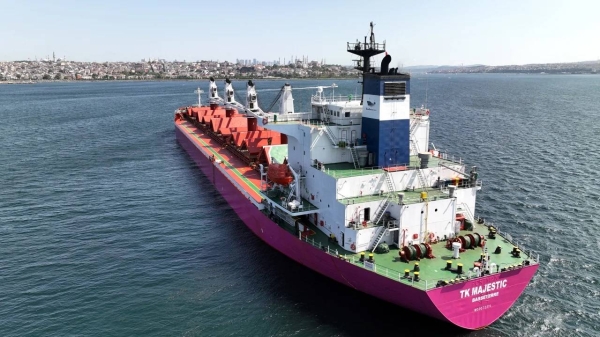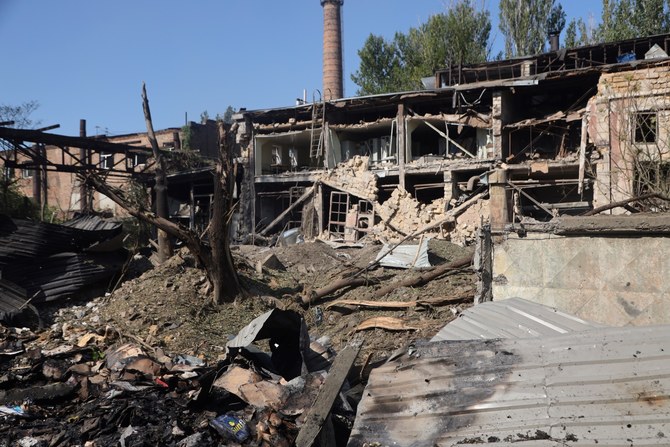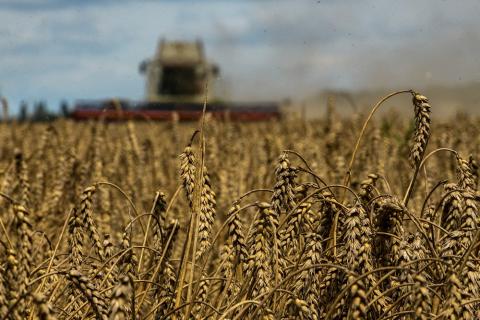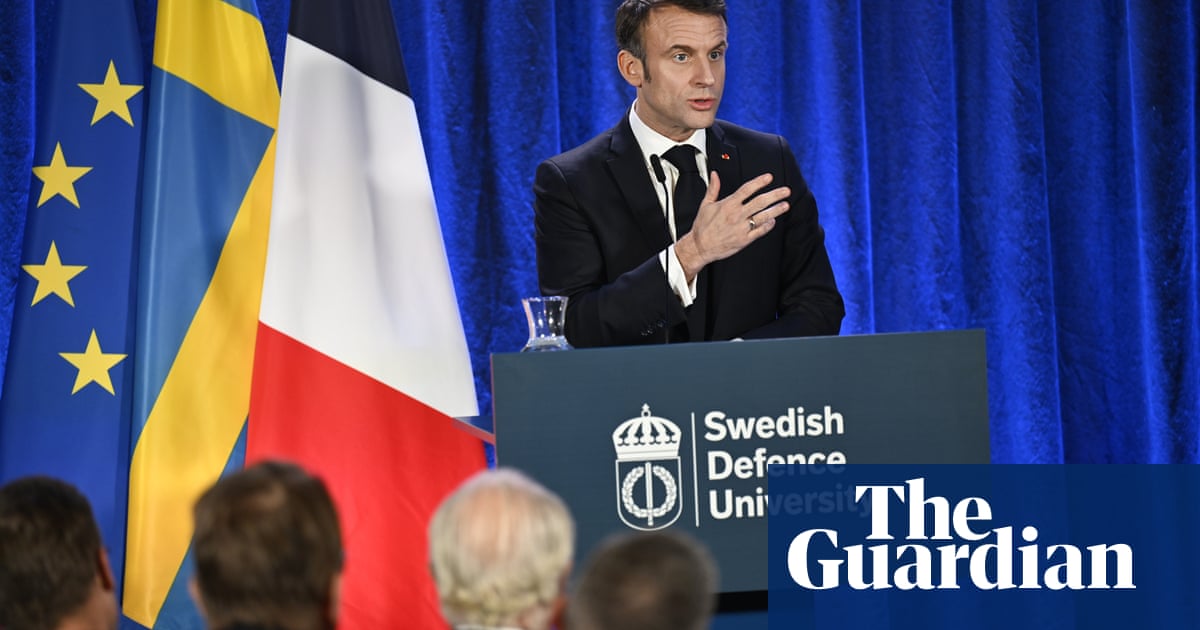
Turkey, the UN, Ukraine and Russia may be nearing an agreement to reopen Black Sea shipping ports closed since Moscow’s invasion began in February. However, a food catastrophe is looming and the only question now is whether it gets even worse.
Even if a deal is reached, as welcome as that would be, much damage has already been done in the almost 150 days that the conflict has raged. Russia’s invasion has shocked agricultural markets, including sunflower oil exports, of which 80 percent of the world’s total comes from the Black Sea region, and wheat, for which Russia and Ukraine account for more than a quarter of global exports.
To be sure, some Ukrainian grain is being rerouted via Europe by rail, road and river, but the amount is small. Other measures include expanding the use of a Romanian Black Sea port, more Danube cargo terminals and cutting red tape for freight at the Polish border.
Since February, Ukraine has exported only a fraction of the 6 million tons a month of grain it did before the war. Typically, 90 percent of wheat and other grains from Ukraine are shipped by sea.
Another legacy of the last few months is that 20 million tons of such grains are currently stockpiled and 60 million tons of harvest in the coming weeks face a similar fate. Little wonder that Ukraine’s agriculture minister says there will be a global wheat shortage for three seasons.
Wheat prices rose 45 percent year on year in the first quarter of 2022, according to the UN’s wheat price index. Vegetable oil jumped 41 percent and sugar, meat, milk and fish prices also rose by double-digit amounts. Worryingly, the real impact of the conflict may only become manifest toward the end of 2022, as it generally takes seven to 12 months for producer cost rises to filter into final consumer prices.
One of the world’s leading financiers, BlackRock founder Larry Fink, warned last week that the significant spikes in oil and mineral prices seen since the Ukraine conflict began have distracted from the more dangerous impact of food inflation and a looming hunger catastrophe across the world. This topic was also a key one at last week’s G20 finance ministers’ meeting in Indonesia. US Treasury Secretary Janet Yellen said at that summit that the world is facing “an extremely difficult time for global food security.” She urged the group to halt stockpiling and export restrictions on food and provide additional financial assistance to countries and people struggling with food insecurity.
UN World Food Programme Director Patrick Beasley has said a global hunger catastrophe will explode over at least the next two to three years. About 180 million people in more than 40 countries face a food crisis or even outright famine in 2022.
The EU warned last week that it must brace for new waves of migrants who have been forced to uproot because of the food crisis aggravated by the Ukraine war. The bloc’s border agency chief Aija Kalnaja convened a meeting of Europe’s interior ministers — expanded to also include ministers from non-EU countries Ukraine and Moldova — to start the planning process. Ylva Johansson, the EU’s home affairs commissioner, said: “We should not wait until we have a crisis at our borders. We… need to reach out earlier on.”
The clear danger is that the number of people displaced across the world — which is already a massive 100 million, as shown by the latest UN “Global Trends” report — will grow much larger. That figure is already larger than the population of many countries, driven by violence, persecution and human rights abuses, including more than 7 million Ukrainians displaced within the country and more than 6 million refugees having fled the nation since February.
So much hinges on whether an accord can be finalized by Turkey, Ukraine, Russia and the UN to help overcome what is a massive challenge. Turkish Defense Secretary Hulusi Akar said the initial deal reached last week needs further technical details to be agreed on, such as the establishment of a coordination center in Istanbul, where representatives of all parties would be present; joint controls at port exit and arrival points; and ensuring “navigational safety on the transfer routes.”
So much hinges on whether an accord can be finalized to help overcome what is a massive challenge.
Andrew Hammond
While a final deal seems plausible, stumbling blocks remain. Ukraine, for instance, is wary of becoming vulnerable to attacks if it removes the mines that are protecting its ports, but which are also blocking its access to the sea. To strike a deal, Kyiv has said Moscow needs to provide guarantees that it will not hit the ports or grain ships once they start operating again.
In this troubled context, Turkey, Russia, Ukraine and the UN must now urgently conclude plans to reopen Black Sea shipping ports. It is time to walk the walk, not just talk the talk.
Andrew Hammond is an Associate at LSE IDEAS at the London School of Economics.












